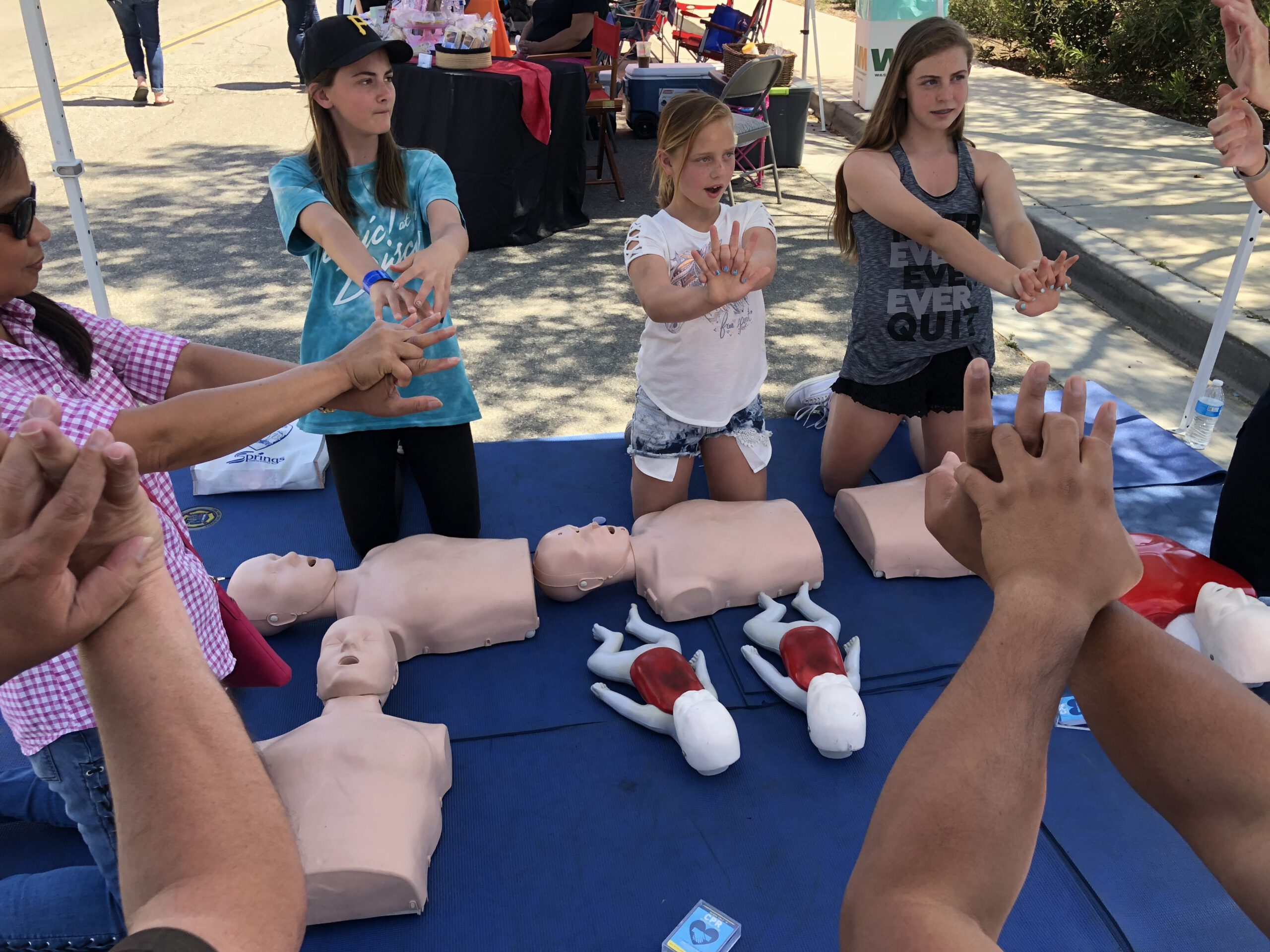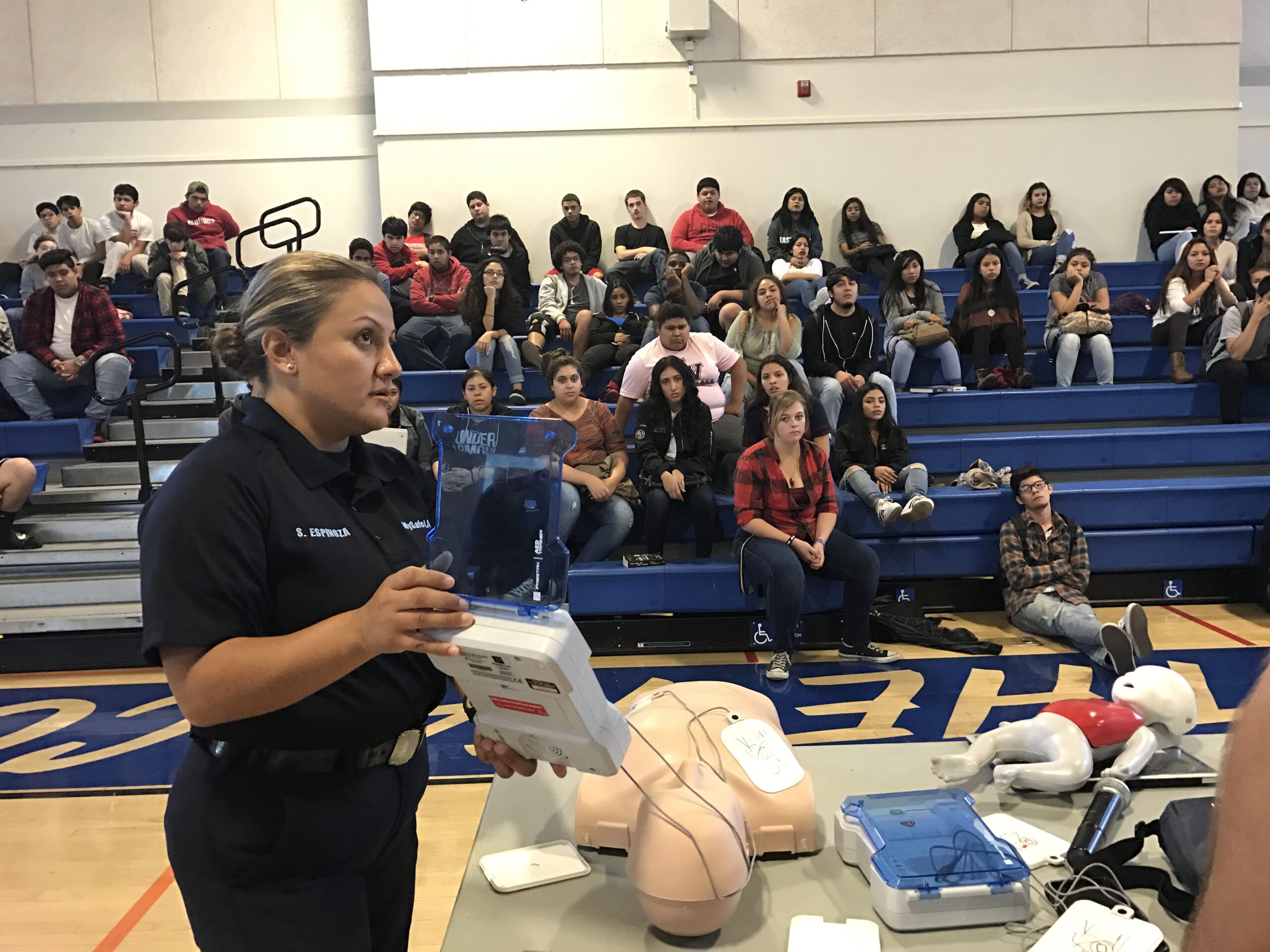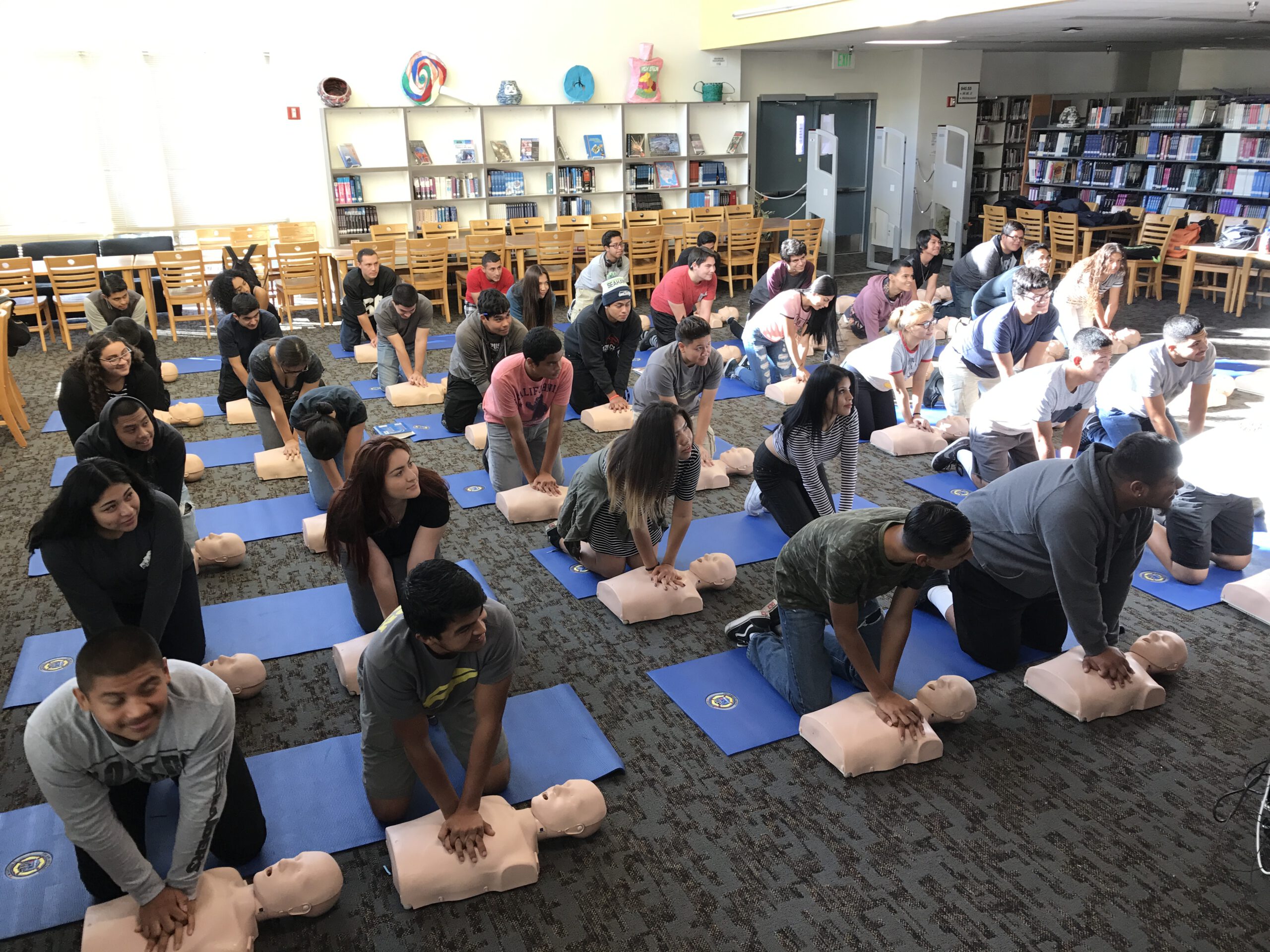Our CPR initiative is designed to give any high school that goes through the program an opportunity to be better prepared whenever someone suffers an unexpected cardiac arrest. The same is true for live public safety fairs. Remember – If performed immediately, CPR can double or triple a person’s chance of survival.

It doesn’t happen every day, but we are so thrilled every time a high school student or graduate tells us they saved a family member due to the training they received. Although not everyone can be saved (depending on the circumstances), at least having the training can improve the chance of survival.
In California, Assembly Bill 1719 requires that students complete a hands only CPR course prior to graduation. The bill provided no funding for this requirement, and many schools are unable to support the training. MySafe:LA is a valued partner in this endeavor.

Teaching high school students how to perform hands-only CPR is simple, easily retainable, and creates a more resilient campus. A complete Cardiac Emergency Response Plan (CERP) is an essential component to every 21st Century learning center’s readiness capabilities. To learn more about how a CERP can impact your high school, please see the attached American Heart Association Policy Brief.

Our instructors provide CPR training for adults, both in corporate (certified) and public event settings (hands-only). We’ve even taught employees in both city and corporate engagements to perform CPR. There’s no better way to be prepared to save a life!



When you’re certified in CPR, you learn a lot more than how to apply chest compressions. You’ll learn how to (safely) provide “rescue breaths,” how to respond to a child and even an infant. You’ll also learn about a variety of unique situations where certification is the best method of attempting to save a life.
If you'd like to have your students or employees trained in CPR, we'd love to hear from you. Together, we can improve survivability from cardiac arrest.
